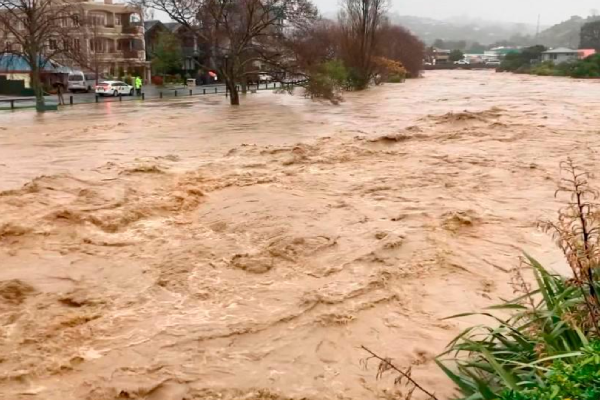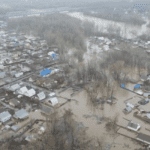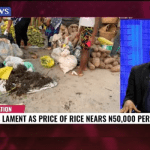Chad’s President, Mahamat Idriss Deby, has declared a state of emergency, lamenting the human and material damage caused by the country’s massive flooding.
According to Deby, heavy floods in the Central African country have affected 636 localities in 18 of its 23 regions, and over a million people, causing tens of thousands to flee and decimating thousands of hectares of cultivated land.
[wonderplugin_video iframe=”https://youtu.be/lPLvLJGeGqk” lightbox=0 lightboxsize=1 lightboxwidth=960 lightboxheight=540 autoopen=0 autoopendelay=0 autoclose=0 lightboxtitle=”” lightboxgroup=”” lightboxshownavigation=0 showimage=”” lightboxoptions=”” videowidth=600 videoheight=400 keepaspectratio=1 autoplay=0 loop=0 videocss=”position:relative;display:block;background-color:#000;overflow:hidden;max-width:100%;margin:0 auto;” playbutton=”https://www.tvcnews.tv/wp-content/plugins/wonderplugin-video-embed/engine/playvideo-64-64-0.png”]
Deby announced a state of emergency “to contain and manage” the disaster, which he said is the result of climate change and one of the most severe the region had seen in years, Anadolu Agency reported.
“The situation is becoming increasingly worrying,“ he said, lamenting infrastructure that has not been designed on the basis of current meteorological and hydrological data.
Deby also warned that more damage than has already been observed could occur as the floodwaters recede in the south of the country.
The most exposed areas are the city of N’Djamena, the capital, and its surroundings, he said.
“In the current conditions, the city is only protected by the banks of the Chari River,“ he noted, warning of an obvious risk of overflow if the rise in water levels remains constant during this week.
He called on friendly countries and technical and financial partners to support the government’s efforts, which include a response organized around the reduction of impacts and assistance to the victims, the report said.
The floods, which followed a severe drought, have led to soaring food prices and left a record 2.1 million people in Chad hungry














